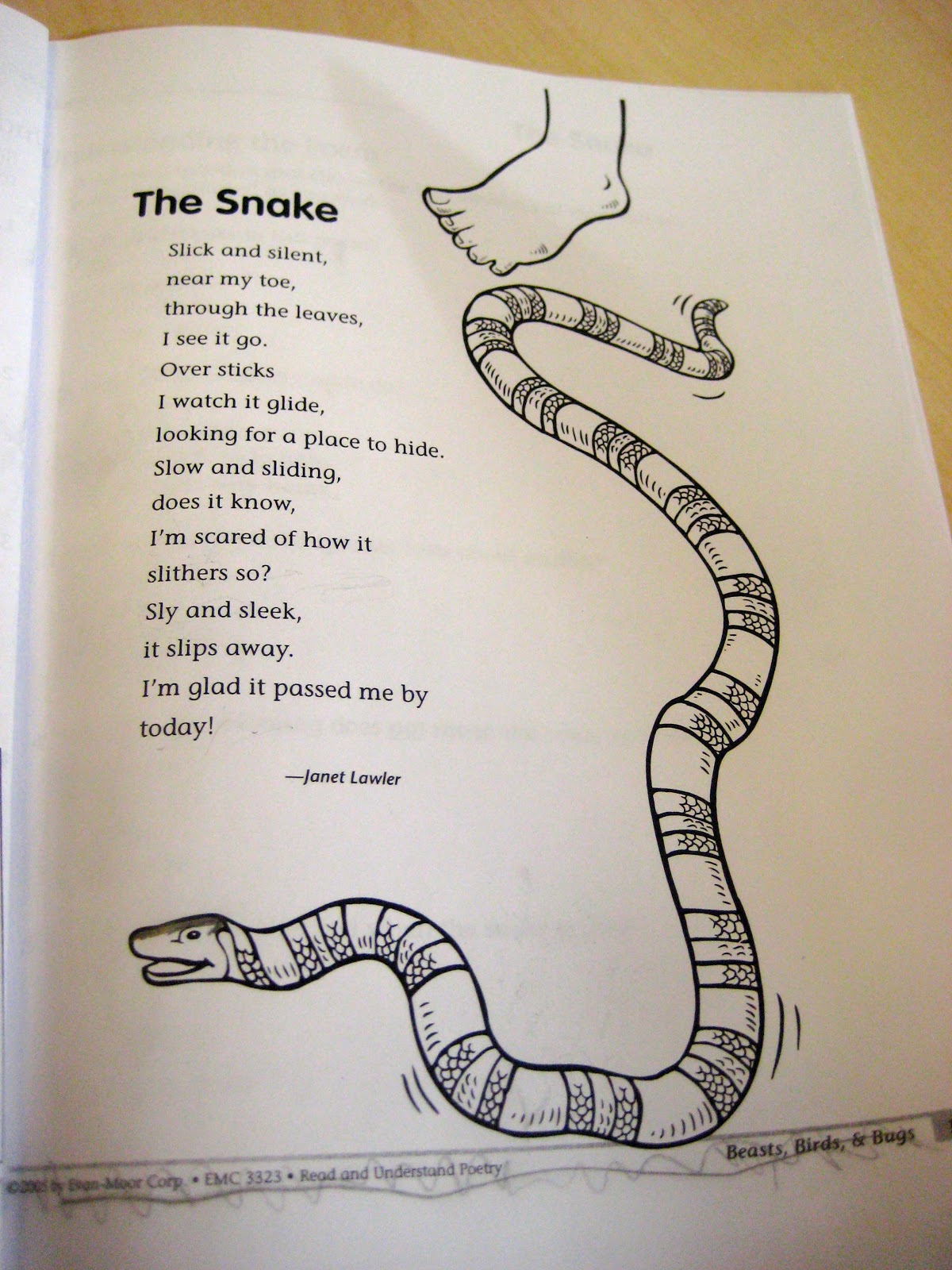Snake
D.H. Lawrence
"Snake" is a poem written by D.H. Lawrence that explores the complex theme of reverence and the evolution of the speaker's attitude towards the snake. The poem captures the speaker's conflicting emotions as he encounters a snake in his garden.

1. Initial Reverence
-
- In the beginning, the speaker expresses a deep sense of reverence and admiration for the snake. The creature is portrayed with a sense of mystique and beauty:
"And so, I missed my chance with one of the lords
Of life.
And I have something to expiate:
A pettiness."
-
- The speaker recognizes the snake as a noble and majestic creature, referring to it as one of the "lords of life." This initial attitude reflects a sense of awe and respect for the snake's inherent beauty and natural authority.
2. Conflict and Fear
-
- As the poem progresses, the speaker's reverence evolves into a conflict of emotions, particularly fear and hesitation. The snake's sudden appearance and intrusion into the speaker's world disrupt his sense of security and familiarity:
"And immediately I regretted it.
I thought how paltry, how vulgar, what a mean act!
I despised myself and the voices of my accursed human
education."
-
- The speaker's immediate regret and self-disdain indicate a conflict between his initial reverence and the societal conditioning that labels the snake as dangerous or repulsive. The speaker's internal struggle reveals the tension between his natural instincts and learned prejudices.
3. Ambivalence and Inner Turmoil
-
- The poem further explores the speaker's inner turmoil as he grapples with conflicting emotions. Despite feeling fear and guilt, there is a lingering sense of attraction and fascination:
"And immediately I regretted it.
I thought how paltry, how vulgar, what a mean act!
I despised myself and the voices of my accursed human
education."
-
- Here, the speaker expresses a sense of self-disgust for succumbing to societal norms and interrupting the snake's passage. The use of words like "paltry" and "vulgar" suggests the shallowness of human judgments, emphasizing the internal conflict within the speaker.
4. Resolution and Return to Reverence
-
- Towards the end of the poem, there is a shift in the speaker's attitude as he reflects on the snake's departure:
"And so, I missed my chance with one of the lords
Of life."
-
- The repetition of the phrase "one of the lords of life" suggests a realization and acceptance of the snake's noble status. The speaker acknowledges the missed opportunity to fully embrace and respect the snake, hinting at a return to the initial sense of reverence.
In conclusion, "Snake" by D.H. Lawrence portrays the theme of reverence through the speaker's evolving attitude towards the snake. From an initial sense of awe, the speaker undergoes a conflict of emotions, including fear and self-disgust. Ultimately, there is a resolution as the speaker recognizes the missed chance to honor and revere the snake as one of the lords of life. The poem highlights the complexity of human emotions and the impact of societal conditioning on our perceptions of the natural world.
-Thank you
